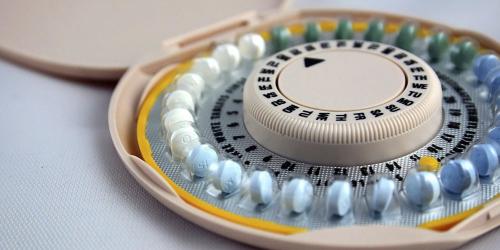In France, two have officially launched the alert a few weeks ago by initiating legal proceedings to demand a reassessment and withdrawal of the contraceptive implant Essure. Some time after the installation of the medical device , these two women have indeed noted significant health problems .
A similar procedure has been under way for several years in the United States. So, should we be worried about this implant marketed since 2002 by Bayer and placed under enhanced surveillance since 2015 by the National Agency for the Safety of Medicines and Health Products (ANSM)?
The Essure implant, an alternative to tubal ligation
Essure is a flexible implant 4 cm long in the form of a spring. The gynecologist introduces it naturally into the tubes, through the vagina and uterus. Once in place, the device formed of an alloy of nickel, chromium, titanium and polyethylene induces an inflammatory reaction of the surrounding tissues.
A natural barrier to spermatozoa
During the three months following the procedure, they become fibrotic, which creates a natural barrier to spermatozoa and thus prevents any possibility of becoming pregnant.
Nothing to do with hormonal contraceptive implants that slip under the skin for three years. The application of Essure is a permanent contraceptive technique, an alternative to surgical tubal ligation.
What are the advantages of this implant?
Reimbursed by social security, it does not require hospitalization or general anesthesia. And she leaves no scar. As this is an irreversible act, the law provides for a reflection period of four months before definitively taking the plunge. Then, once the tubes are blocked, we are protected for life from pregnancy. A 3-month check appointment is made to verify that this is indeed the case.
"The target is the woman over 40, who has already had children and is certain never to want more," says Dr. Brigitte Letombe, a medical gynecologist in Lille. This apparently reliable device is becoming more and more popular: of the 30,000 women who opt for permanent sterilization each year, 60% of them chose Essure in 2015, compared to 48.5% in 2009 and 19% in 2006.
Unexpected side effects
Clinical studies conducted in view of Essure's marketing authorization concluded that "97% of women treated could trust the device". But their follow-up had stopped at two years. Other studies have been done since then. However, their conclusions never questioned the benefit / risk ratio of the implant.
However, between 2012 and 2016, 646 reports of adverse effects were reported to the National Agency for Drug Safety (ANSM). And some 5,000 similar cases have been sent to the FDA in the United States.
Nausea, vomiting, vertigo, pain
Main misdeeds noted: nausea, vomiting, dizziness, bleeding and pelvic pain, as well as a few rare cases of perforation of the fallopian tubes or uterus due to migration of the spring due to poor placement.
But the side effects mentioned by the French complainants are much more serious: chronic fatigue, unbearable back pain and intense muscle pain that eventually prevented some from walking.
Is Essure the only one involved? Difficult for the moment to know.



